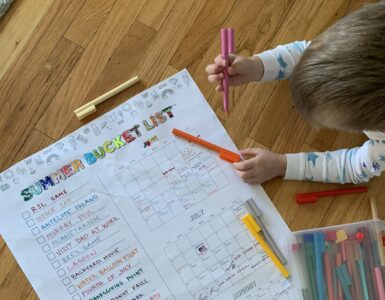There are topics even best friends have a hard time talking about. We explore real life scenarios and offer real life solutions to help you tackle touchy subjects with your best friend.
Why are some topics difficult to talk about, even among our closest friends? Women tend to feel responsible for their friends’ feelings & don’t want to jeopardize the friendship. In a recent interview by WomansDay.com I gave some advice to women from around the country on how or if to approach sensitive topics with your best friend. So, it got me thinking about what topics are difficult for women in Utah women to talk about. Here are some real situations from local women (names have been changed) who need help to bring up a topic with their best friend.
1) “Your kid’s behavior isn’t normal”
Jenna writes “I have a dear friend whose son showed some signs of Asperger’s syndrome. I know because I have a child with mild autism. Should I bring up my concern to her or let her figure it out on her own?”
TIP – Make tentative observations
When approaching the subject with your friend use words like, “I’ve noticed…”, “I’m curious about…”, “I wonder…”
2) “Your husband is a jerk”
Tiffany: “I love my best friend, but I can’t stand her husband! He is an egotistical jerk who expects my friend to cater to him. He often puts her down in front of me and others in a joking way, but I can tell that it still hurts her. She doesn’t deserve to be treated that way. I want to tell her how I feel but I don’t want to hurt our friendship.”
TIP – Stay on your side of the court
Stay on your side of the court and describe what it’s like to be you watching your friend interact with her husband. Focus on how you feel when he says those things to your best friend and what happens in your body.
3) “I’m hurt that you never call me”
Shannon: “I had a close friend who never called me. Whenever we were together, we had a delightful time. I could feel that she genuinely liked me. I was hurt and frustrated, though, that I always had to be the one to make the call, to rearrange my schedule, etc., to make it possible for us to get together. I was never able to bring it up to her. I didn’t want to make her feel guilty, and I was a little bit afraid I’d hear that she didn’t actually want to spend time with me. What could I have done differently?”
TIP – Ask a question
“It seems like I initiate getting together more. What’s your take on it?”
People have different friendship styles. In my own life I’ve seen that people “lean into” the friendship, some “lay back” into the friendship, and others shift between the two styles.
4) “You don’t take my advice”
Courtney: “I met my best friend in college years ago and we are as close as can be. She is constantly asking for my advice on every situation. She helped me get past a painful break up, but when it came to her dysfunctional relationship she didn’t listen to me when I told it’s obvious that they should break up. I don’t know why I bother giving her advice, it is so frustrating to try and be a supportive friend and listening ear when she constantly does dumb stuff like this!”
TIP – Toss it back
When your friend asks you for advice turn the question back to her saying something like, “Hmmm. I don’t know. What do you think you should do?”
5) “You avoid the hard topics”
Jill: “I always had a hard time talking about the struggles I had with my husband at the time. I felt like my friend always looked at me like “well why did you marry him in the first place? Don’t we all have a few hard times in a marriage? ”
TIP – Go where it feels safe
If you’re having struggles and needing support, the last thing you need is judgment or lack of empathy. Not all friends are equally equipped to handle your deeper pain. Let your friend know specifically what you’re looking for from her and if she can’t step up, talk to another friend, family member, clergy, or a therapist.
Julie de Azevedo Hanks, LCSW is a therapist, self & relationship expert, media contributor, and director of Wasatch Family Therapy. Visit www.wasatchfamilytherapy.com for individual, couple, family, & group counseling services designed to strengthen you and your family. We treat mental health and relationship problems in children, adolescents, and adults.
For additional emotional health & relationship resources connect with Julie at www.juliehanks.com.















Add comment